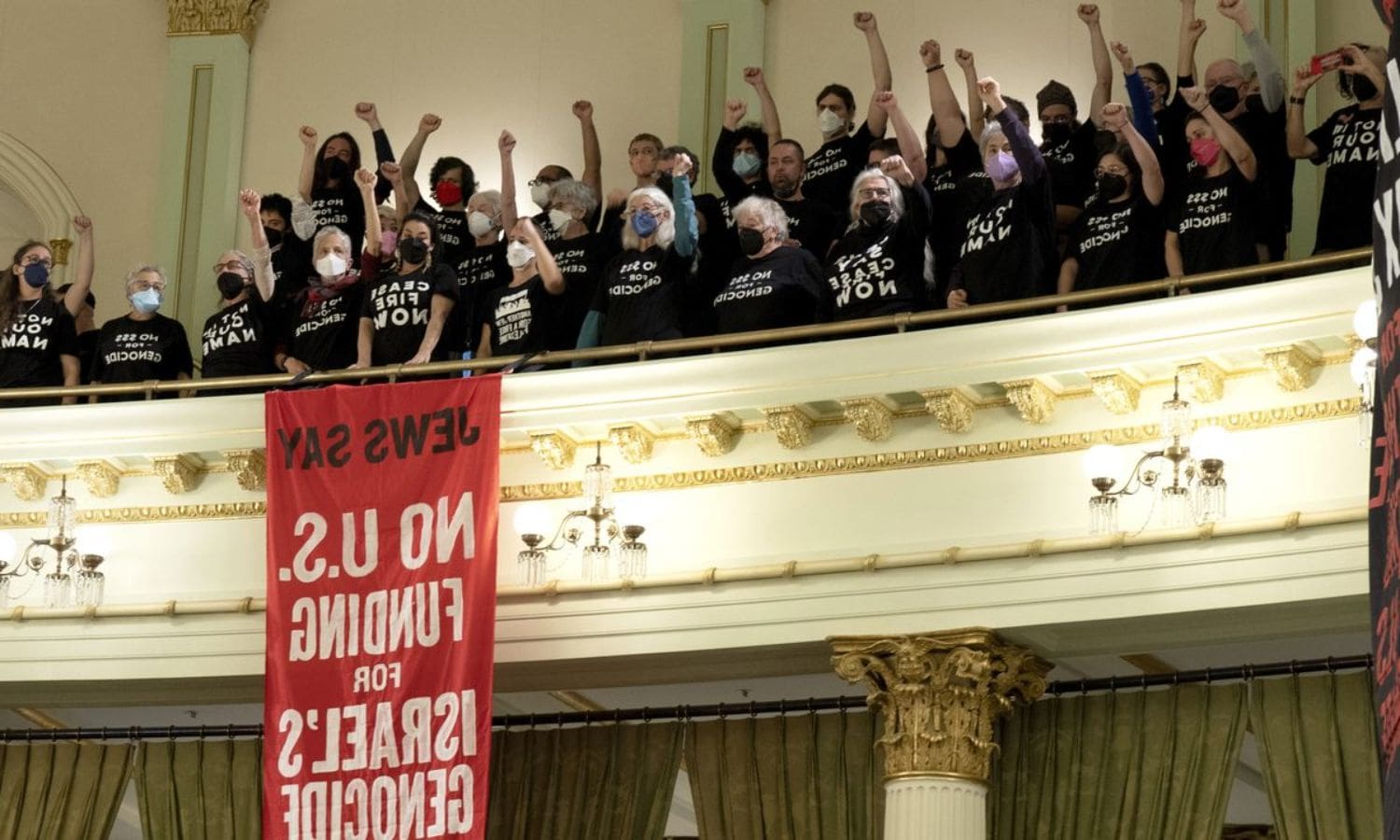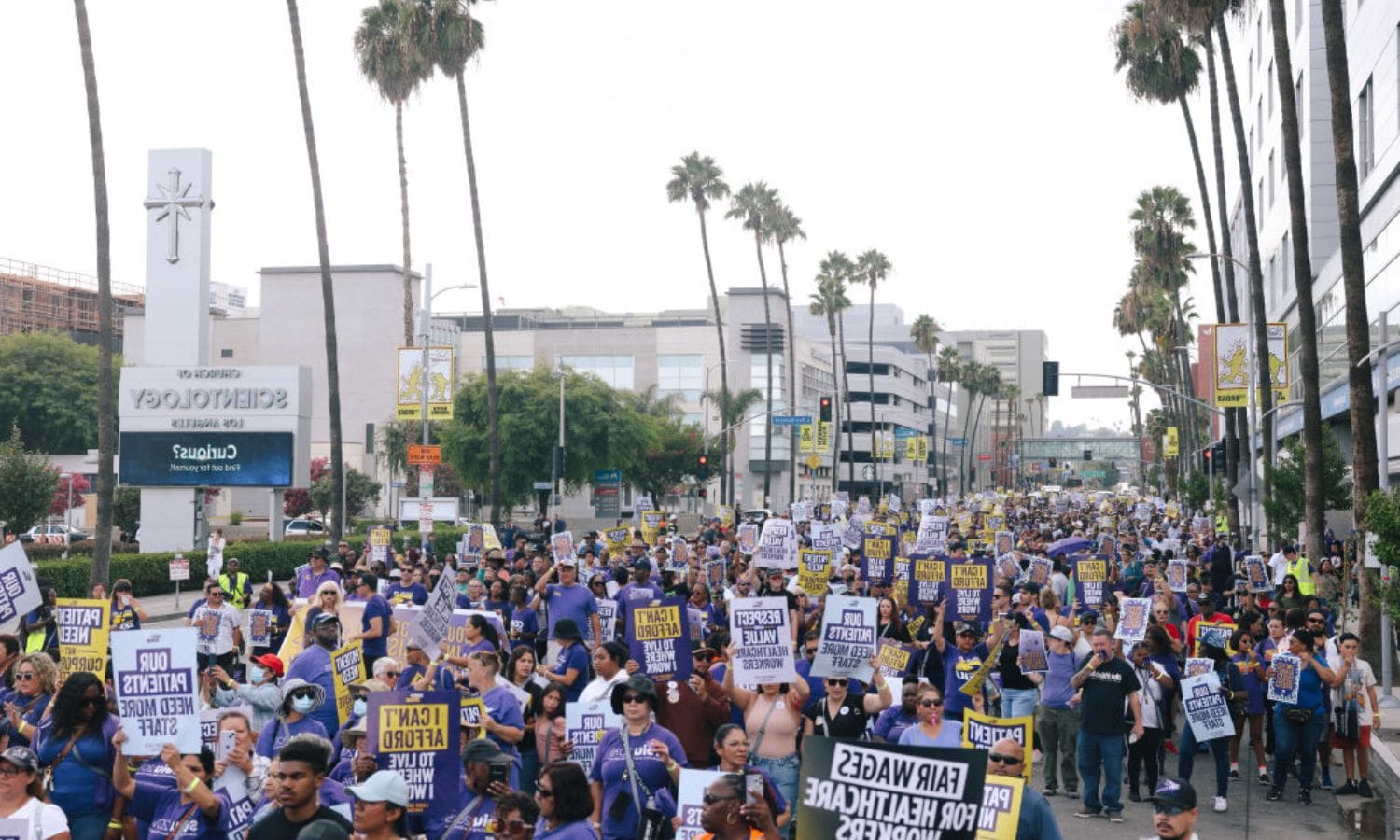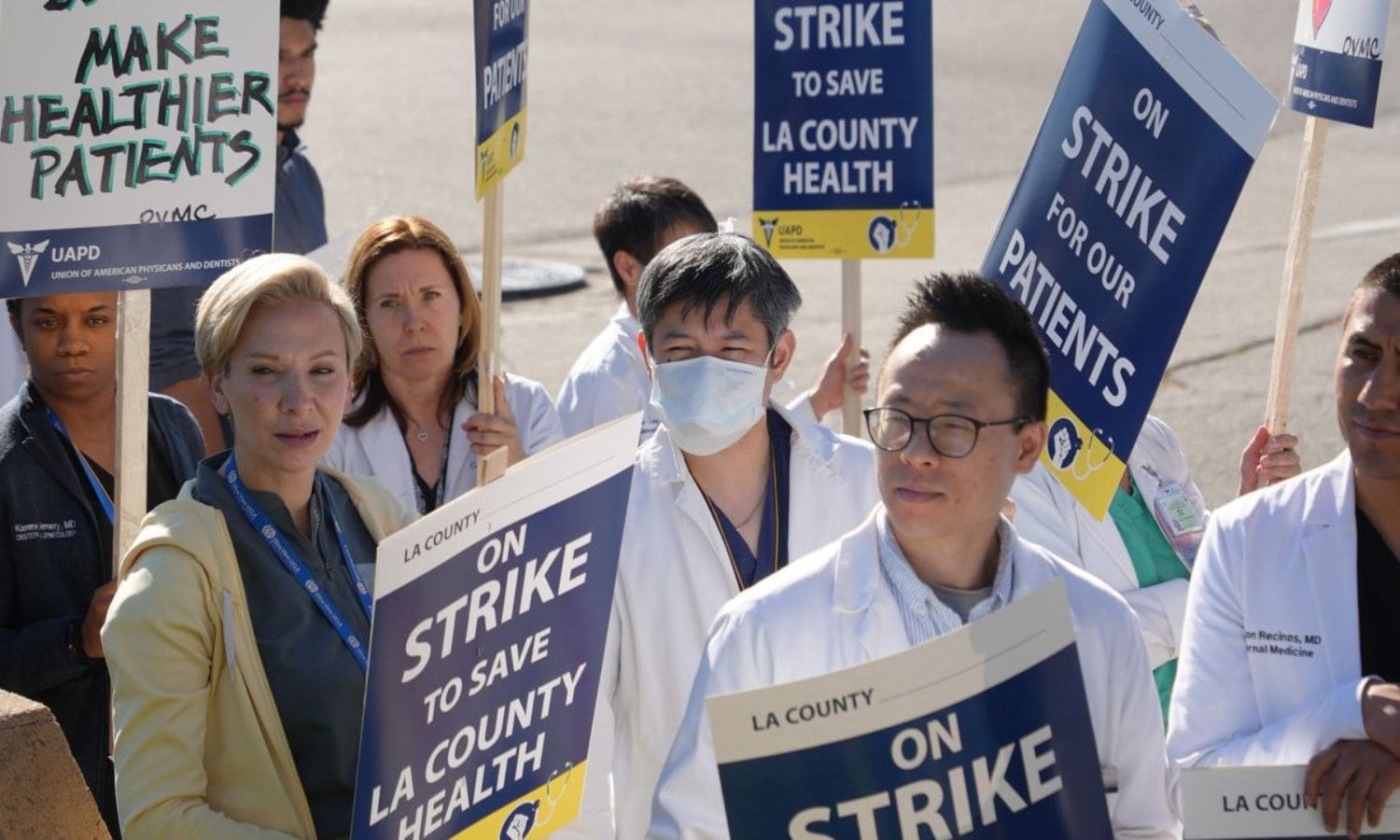California as Corporations Retalitate: In light of recent minimum wage legislation, corporations in California have begun retaliating against these new regulations. Aims to provide an insightful and analytical perspective on the impact of minimum wage on the fast-food and healthcare sectors.
Through examining the recent layoffs at Pizza Hut and Kaiser Permanente, as well as the shifts in employment strategies in the gig economy, it becomes evident that deteriorating working conditions and criticism of minimum wage legislation are pressing issues.
Furthermore, this article discusses the economic challenges and broader social implications of these retaliatory measures.
Key Takeaways
- Fast-food businesses and the healthcare sector in California are struggling to cope with the increased labor costs resulting from minimum wage legislation.
- Layoffs have been observed in companies like Pizza Hut and Kaiser Permanente as a result of the financial strain caused by higher wages.
- Corporations in California are shifting their employment strategies towards the gig economy to circumvent regulations and classify workers as independent contractors.
- The rise of the gig economy has led to deteriorating working conditions, lack of job security, and a growing criticism of the perceived ineffectiveness of minimum wage legislation in improving working conditions.
Minimum Wage Impact on Fast-Food and Healthcare Sectors
The minimum wage increase in California has had a significant impact on the fast-food and healthcare sectors. With fast-food workers now earning $20 per hour and healthcare workers expecting an increase to between $18 and $23 per hour, these industries are experiencing a wave of change.
While this increase in wages is seen as a positive step towards providing workers with a fair income, it has also led to unintended consequences. In the fast-food sector, many businesses are struggling to absorb the higher labor costs and are being forced to make tough decisions, such as reducing staff or increasing prices.
Similarly, the healthcare sector is grappling with the financial implications of higher wages, which may result in a decrease in the availability and affordability of healthcare services.
It is crucial to consider the long-term effects of these wage hikes and find a balance that benefits both workers and employers without compromising the quality of services provided.

ALSO READ: California Proposed Conservation Rules Face Costly Criticism
Layoffs at Pizza Hut and Kaiser Permanente
Pizza Hut, operated by PacPizza, LLC, and Kaiser Permanente, a major healthcare employer, are both grappling with the consequences of California’s minimum wage legislation, resulting in layoffs of over 1,200 workers and 115 IT workers respectively. These layoffs highlight the challenges that businesses face when trying to comply with increased labor costs mandated by the state.
The repercussions of the minimum wage bill are far-reaching, impacting both the fast-food and healthcare sectors. The layoffs at Pizza Hut and Kaiser Permanente serve as examples of the difficult decisions companies are forced to make to mitigate the financial strain caused by the legislation. The following factors contribute to the layoffs:
- Increased labor costs: The minimum wage legislation imposes a 30% wage increase, making it harder for businesses to maintain their current workforce.
- Cost-cutting measures: To offset the higher labor expenses, companies resort to reducing their workforce, leading to job losses.
- Automation and technology: In response to rising labor costs, businesses may turn to automation and technology solutions, resulting in reduced reliance on human workers.
- Reevaluation of business models: Companies may need to reassess their operations and make strategic changes to adapt to the new wage requirements.
- Economic uncertainty: The minimum wage legislation can create an environment of uncertainty, making businesses hesitant to invest in new hires or retain current employees.
These layoffs demonstrate the complex challenges that arise when trying to strike a balance between fair wages for workers and the financial viability of businesses. It is crucial for policymakers to consider the potential consequences of such legislation to minimize negative impacts on both employees and employers.
Gig Economy and Shifts in Employment Strategies
How are corporations in California adapting their employment strategies in response to minimum wage legislation?
The gig economy has become a favored avenue for corporations to circumvent the regulations and obligations imposed by minimum wage legislation. By relying on third-party apps like GrubHub and DoorDash, companies are able to classify workers as independent contractors, thereby evading employment taxes and denying workers their rightful benefits.
This shift towards gig work has seen a significant increase in California, with over 3.4 million gig workers reported in 2019 alone. While this may seem like a convenient solution for corporations, it perpetuates precarious employment and undermines the stability and security that minimum wage legislation aims to provide.
It is crucial for policymakers to address these loopholes and ensure that workers are protected and fairly compensated, regardless of their employment arrangement.

Deteriorating Working Conditions and Criticism of Minimum Wage Legislation
Amidst the rise of the gig economy and corporations’ reliance on independent contractors to evade minimum wage legislation, concerns over deteriorating working conditions and growing criticism of the legislation have come to the forefront.
Workers are being transformed into day laborers, lacking job security and access to benefits such as healthcare and pensions. This shift in employment strategies has resulted in a lack of stability and rights for workers.
The minimum wage legislation, which was intended to protect workers, is now being viewed critically. Questions are being raised about the Democrats’ true commitment to workers’ interests, as the legislation seems ineffective in improving the overall working conditions.
The situation has led to a growing discontent among workers and a call for stronger measures to address the deteriorating working conditions.
Economic Challenges and Broader Social Issues
The economic challenges faced by Californians, including rising prices, growing poverty, and a looming recession, are intertwined with broader social issues.
As the cost of living continues to rise, many Californians are struggling to make ends meet. This has resulted in a significant increase in poverty levels, with more and more individuals and families unable to afford basic necessities.
Additionally, the state’s economy is facing the threat of a recession, which could further exacerbate these challenges.
These economic challenges are not isolated issues, but rather reflect deeper social problems.
The recent protests during a legislative session, which highlighted broader issues such as the Palestinian cause, demonstrate the interconnectedness of economic struggles and social justice.
It is evident that addressing the economic challenges faced by Californians requires a comprehensive approach that takes into account the broader social issues at play.
Without addressing these underlying social problems, any attempts to alleviate the economic challenges will only provide temporary relief.
A holistic approach that addresses both economic and social issues is necessary for long-term sustainability and equality.

Conclusion Of California as Corporations Retalitate
The implementation of minimum wage legislation in California has led to significant consequences in the fast-food and healthcare sectors. Layoffs have been observed at Pizza Hut and Kaiser Permanente, while the gig economy has witnessed shifts in employment strategies.
Moreover, there has been criticism regarding deteriorating working conditions and the impact of minimum wage legislation. These economic challenges are indicative of broader social issues that need to be addressed and considered in future policy decisions.
Our Reader’s Queries
What is considered workplace retaliation in California?
Retaliation takes many forms, from demerits and negative reviews to job loss and exclusion from programs. No matter how it manifests, it’s unfair and illegal. Punishing employees for speaking up or reporting wrongdoing is harmful and unacceptable. It’s important for employers to create a safe and supportive environment where employees feel comfortable reporting issues without fear of retaliation.
What is a prima facie case of retaliation in California?
To prove retaliation, an employee must show three things: (1) they engaged in protected activity, (2) their employer took negative action against them, and (3) there is a clear link between the protected activity and the negative action.
What is the penal code for retaliation in California?
California Penal Code § 217.1, also known as Assault of Official in Retaliation, prohibits the assault of an official in order to prevent them from performing their official duties. This law is in place to protect public officials from harm and ensure that they can carry out their duties without fear of physical harm. If convicted of this crime, the offender may face serious consequences, including imprisonment and fines. It is important to understand the severity of this offense and to respect the authority of those who serve the public.
What is unfair treatment in the workplace in California?
For an act to be considered unfair treatment, it must be unwanted and driven by your protected characteristics such as age, race, gender, sex, disability, and more. Additionally, the treatment must be severe or pervasive, which means it continues to happen repeatedly despite efforts to put an end to it.

